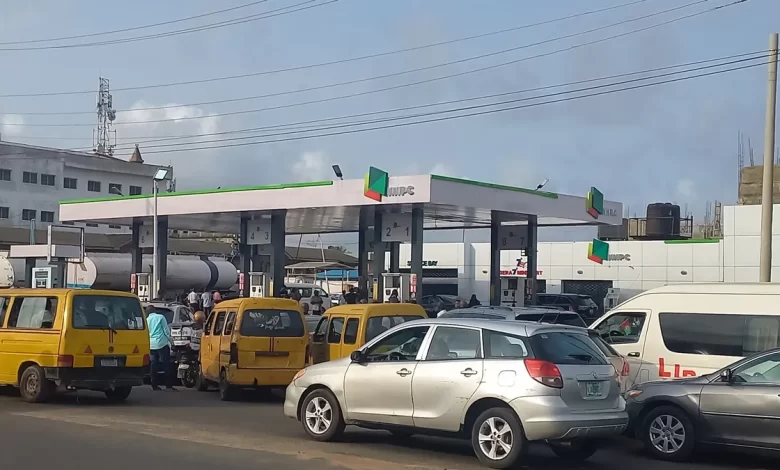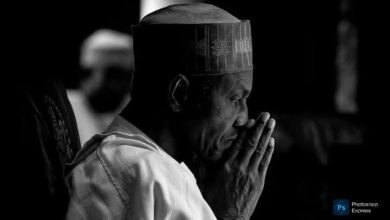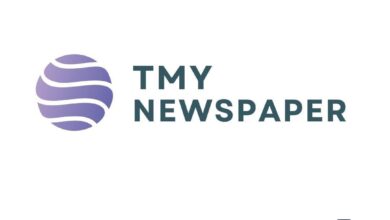Scarcity: Fuel price hits N900/litre in Lagos


The fuel scarcity which hits parts of the Federal Capital Territory (FCT) Abuja, and environs, has now crept into Lagos, driving price per litre to as high as N900.
The situation, which is being triggered by worst supply crisis in recent times, has led to long queues stretching kilometres and causing heavy gridlock in Abuja and Lagos.
In a statement signed by Chief Corporate Communications Officer of NNPCL, Olufemi Soneye, the national oil company said there had been a disruption of ship-to-ship transfer of petrol between mother vessels and daughter vessels resulting from a recent thunderstorm.
The adverse weather condition, Soneye said, caused a disruption in station supply logistics.
NNPCL said petrol could not be load during rainstorms and lightning because of its flammability and in compliance with the Nigerian Meteorological Agency (NIMET) regulations.
“The NNPC wishes to state that the fuel queues seen in the FCT and some parts of the country were as a result of disruption of ship-to-ship (STS) transfer of Premium Motor Spirit (PMS), also known as petrol, between mother vessels and daughter vessels resulting from recent thunderstorm”, the statement said,
“The adverse weather condition has also affected berthing at jetties, truck load-outs and transportation of products to filling stations, causing a disruption in station supply logistics.
“The NNPC also states that due to flammability of petroleum products and in compliance with the Nigerian Meteorological Agency (NIMET) regulations, it was impossible to load petrol during rainstorms and lightning.
“Adherence to these regulations is mandatory as any deviation could pose severe danger to the trucks, filling stations and human lives.”
Soneye stated that the situation was compounded by consequential flooding of truck routes, which constrained movement of petrol from the coastal corridors to the federal capital, Abuja.
NNPCL said it was working with relevant stakeholders to resolve the logistics challenges and restore seamless supply of petrol to affected areas.
“Already, loading has commenced in areas where these challenges have subsided, and we are hoping the situation will continue to improve in the coming days and full normalcy will be restored.
“The NNPC also calls on motorists to avoid panic buying and hoarding of petroleum products,” he added.
However, the Independent Petroleum Marketers Association of Nigeria (IPMAN) disputed the claim by the national oil company, and cited the sole importation of petrol by NNPCL and the exorbitant cost of purchase from private depots as primary causes of the scarcity.
Private depot owners had increased the ex-depot price of petrol from N630 to N720 per litre, making it challenging for independent marketers to procure the product.
In an interview with journalists, National Vice President of IPMAN, Hammed Fashola, said many filling stations did not open for business because they had no fuel.
Fashola said NNPCL, the sole importer of petrol at the moment, should explain to Nigerians what was happening with the product.
He stated: “Those that shut their stations do not have fuel to sell. When you don’t have fuel, you cannot open your station. That is the problem.
“You know the NNPC is the sole importer of this product. I think it is in the best position to tell us what is going on.
“Currently, independent marketers cannot buy what the private depots are selling. They are selling fuel between N715 and N720 per litre.
“How much will marketers sell the product? Look at the cost of bringing it to their depots; with transportation and other depot expenses, it will be too costly for them.
“That is why the stations are shut down. Some marketers refuse to go and buy because they know the masses cannot afford high-priced petrol in this economy. That is the situation for now.”




